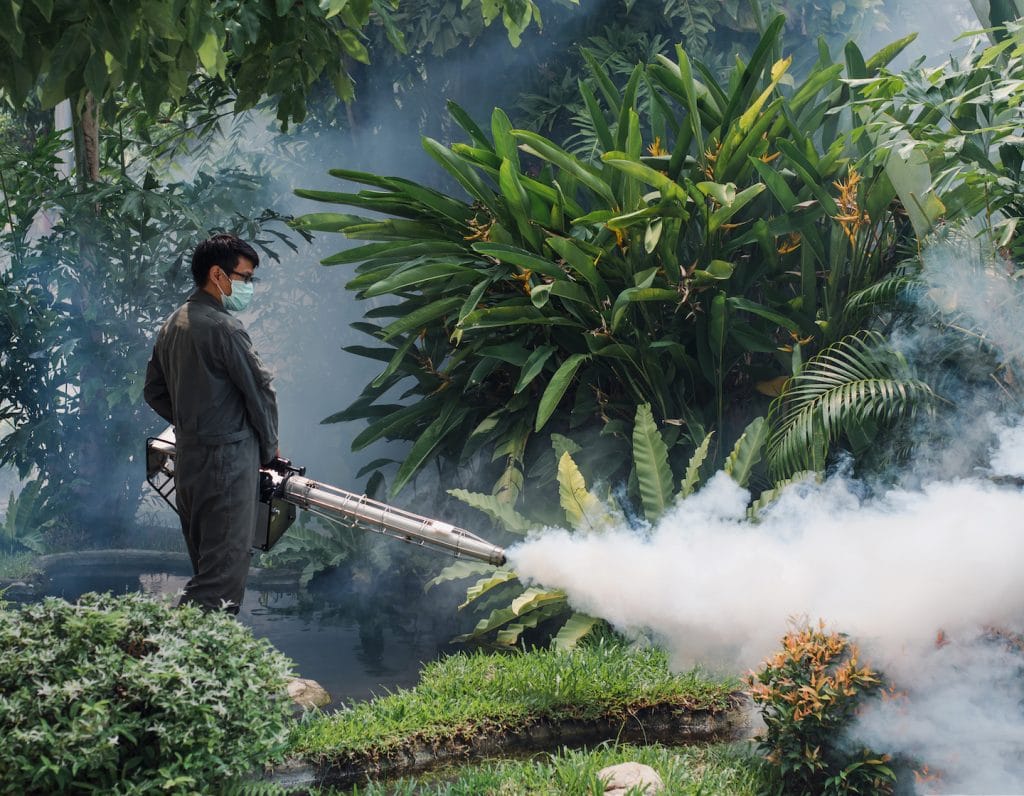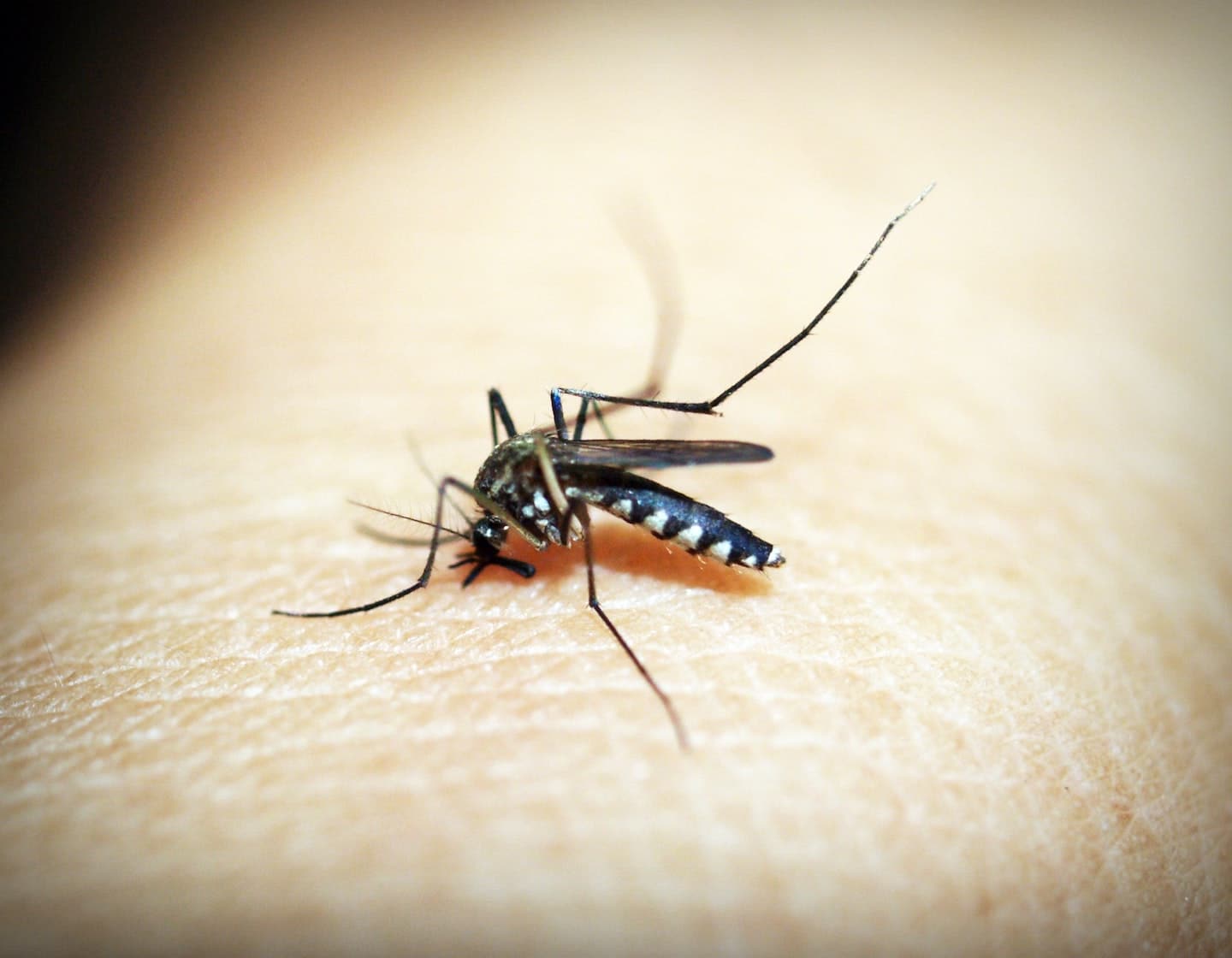
The Zika virus has resurfaced in SG again. Here’s how to how to prevent getting infected (especially if you are pregnant) and how to identify Zika virus symptoms
According to the Straits Times, Singapore has reported a new Zika virus case between 21 to 27 August 2022 – the first of its kind since March 2020, while 666 dengue cases were recorded for that week. The news was first published in the Ministry of Health’s weekly infectious diseases bulletin dated 31 August 2022. The National Environment Agency said on its website that there is currently no active Zika cluster. Worried about the Zika virus? We ask Dr Cheryl Kam to weigh in with some expert advice on identifying the symptoms of Zika, how to get tested for the virus and importantly, how to avoid getting it.
What is Zika virus and what is the fuss?
Zika is a virus discovered in the 1940s, found to be transmitted by the Aedes Mosquito. Illness caused by the virus was mild, and it never was reported to have spread or to have caused any lasting harm. A few years ago Brazil reported a rise in cases of babies with microcephaly coinciding with several outbreaks of Zika. This led to scientists correlating the condition with the virus, and further studies are currently underway with their research and data collection.
What is microcephaly?
Microcephaly is when a baby’s head size is disproportionately smaller than the rest of its body. This phenomenon has many causes, such as a group of infections known as STORCH (syphilis, toxoplasmosis, other infections, rubella, cytomegalovirus infection and herpes simplex), or exposure to alcohol, certain drugs and toxic chemicals. Zika infection during gestation seems to be a very likely additional cause for microcephaly. A disproportionately smaller head more often than not correlates to incomplete brain development and may present with developmental and behavioural issues in these children. Microcephaly is diagnosed by measurements done during ultrasound in the late second trimester onwards, and after birth.

How is Zika transmitted?
It is spread primarily via the bite of an infected Aedes mosquito. If a day-biting Aedes mosquito has previously bitten a person having an active Zika infection, it carries the virus around, ready to infect the next person it bites. This is the same Aedes mosquito found locally that is also known to carry the Dengue virus. This differs to the night-biting Anopheles mosquito, which is known to carry Malaria. Zika may also spread during sexual intercourse, although there are few confirmed cases of this occurring.
Is Zika deadly?
No, Zika virus infection is a mild disease and deaths from it are extremely rare.

What is the deal with pregnant ladies getting Zika?
Especially during the first trimester where most of a fetus’s brain is developing, any infection can interrupt this. A pregnant woman infected with Zika virus around this time is said to have an increased risk of giving birth to a baby with microcephaly. This risk of microcephaly and other birth defects is even more with other infections such as Rubella, Syphillis, Toxoplasmosis, Cytomegalovirus and Herpes Simplex.
Zika infection in pregnancy also results in pregnancy complications such as fetal loss, stillbirth, and preterm birth. Zika virus infection is also a trigger of Guillain-Barré syndrome, neuropathy and myelitis, particularly in adults and older children.
What are the symptoms?
Most people infected with the Zika virus do not develop symptoms. If there are symptoms, they usually develop 3-12 days after the mosquito bite and are similar to those of dengue and chikungunya. Symptoms which often last 4-7 days include:
- Fever
- Rashes
- Joint pains, muscle pain, headache
- Conjunctivitis (red eyes)
The symptoms of Zika virus infection can be very mild. In some cases, they may be mistaken for dengue. Therefore, all returning travellers from areas with ongoing Zika virus transmission should make their doctor aware of their travel history, to enable an accurate diagnosis and help contain any possible spread to others. If a person is currently infected with Zika virus and aware of it, they should be diligent with long-sleeved clothing and mosquito spray, to prevent themselves getting bitten and subsequently infecting someone else in this manner.
Sexual activity should be abstained from during this time of active infection lasting 7 days.

How do I get tested if I suspect I have a Zika virus infection?
Currently, the only reliable test available for Zika is the reverse transcriptase-polymerase chain reaction (RT-PCR) test, which looks for genetic material of the virus in clinical specimens such as blood and urine. The RT-PCR test is only able to detect Zika infection within 5 to 7 days of acute infection, and not after. After the 7-day period, a person is said to no longer to be carrying the virus. This means that a previously infected woman who conceives after clearing the infection will not pass the virus onto her foetus.
What treatments are available for Zika infections?
There is no known vaccine or specific treatment against the Zika virus. Much like with dengue, treatment is directed at alleviating symptoms.

How do I prevent Zika transmission?
Be aware of high-risk areas, and refrain from travelling to these areas, especially during the first trimester of pregnancy (an updated list is available on the CDC’s website). Prevention of mosquito breeding and mosquito bites is advised (unsurprisingly). Consider applying bug spray that contains DEET when you are outside. You can find more info about DEET and other repellents in ‘Preventing Dengue fever in Singapore’.
How do I prevent the spread of Zika if I have travelled to a high-risk area?
Those who live in or have travelled from high risk areas need to be individually counselled on risks of sexual transmission, and family planning. To prevent the onward transmission of Zika and adverse pregnancy and fetal outcomes, all returning travellers from high risk areas are advised to use a condom during intercourse or abstain from sex for a period of six months for men and two months for women. Sexual partners of pregnant women, living in or returning from areas where local transmission of Zika virus occurs, should practice safer sex or abstain from sexual activity throughout pregnancy.
If men experience symptoms (rash, fever, arthralgia, myalgia or conjunctivitis) then they should use a condom. This advice is consistent with the World Health Organisation advice at time of writing.
References
www.cdc.gov/zika
www.who.int/csr/disease/zika/information-for-travelers/en/
www.who.int/news-room/fact-sheets/detail/zika-virus
www.nature.com/news/zika-and-birth-defects-what-we-know-and-what-we-don-t-1.19596






 View All
View All





 View All
View All









 View All
View All






